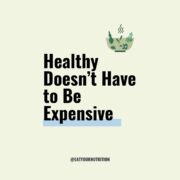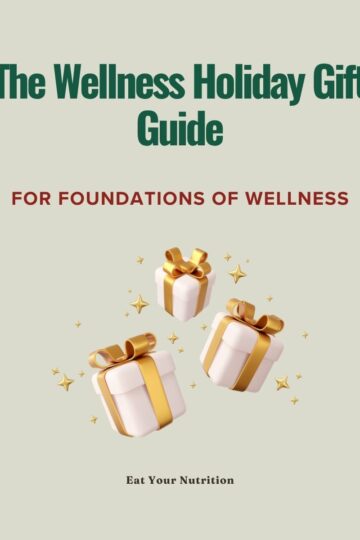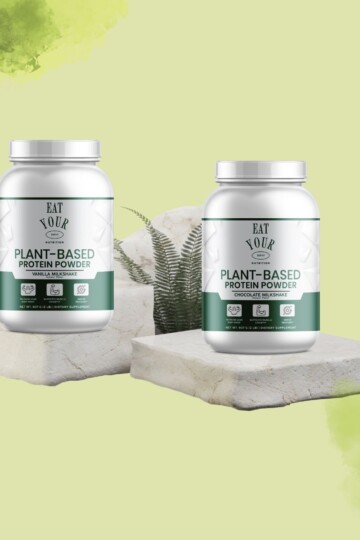Could these 8 hidden most common stressors be hurting your hormones? These hidden stressors are subtle, yet impactful factors that can sneak into our daily lives without us even realizing it. What hormones are affected by stress? You might also wonder if hormonal changes cause hives? Let's explore this topic.

Table of Contents
😩 Everyday Common Stressors
Are you often feeling overwhelmed and experiencing unexplained changes in your body? It may be possible that hidden stressors cause disruption to your hormonal balance.
Remember, it's essential to listen to your body and pay attention to any symptoms or changes you may be experiencing.
Identifying and addressing these hidden stressors can go a long way in restoring hormonal balance and promoting overall well-being.
So let's find out if stress can affect your hormones, and what we can do to balance those hormones.
☀️ 1. Circadian Disruption
This is also known as interference to the body's internal clock. Sleep disturbances, such as insomnia or irregular sleep patterns, can also disrupt hormone production.
It is essential to prioritize a good night's sleep by creating a relaxing bedtime routine and ensuring your bedroom environment is conducive to restful sleep.
😧 2. Harmful Hidden Ingredients
Another hidden stressor that often goes unnoticed is the consumption of processed foods. Many processed foods contain high levels of refined sugars, unhealthy fats, and artificial additives.
They can disrupt insulin sensitivity and promote inflammation, leading to disturbances in insulin, estrogen, and other hormones.
These ingredients can cause inflammation in the body, leading to hormonal imbalances. Opting for a diet rich in whole foods, such as fruits, vegetables, lean meats, and whole grains, can support hormonal health.
🌳 3.Environmental Toxins
Endocrine-disrupting chemicals (EDCs) prevalent in plastics, cosmetics, and pesticides mimic or interfere with hormones.
These EDCs, such as phthalates and bis-phenol-A, can disrupt thyroid, estrogen, and testosterone function.
Furthermore, environmental toxins can quietly interfere with your hormones. These chemicals mimic our hormones and interfere with their normal functioning.
Opting for natural and eco-friendly alternatives can help reduce exposure to these toxins.
💻 4. Digital Overload
One of the most common hidden stressors is excessive exposure to artificial light, especially during the evening.
Disruptions to the circadian rhythm through irregular sleep patterns or night-time exposure to artificial light can lead to imbalances in melatonin, cortisol, and reproductive hormones.
Prolonged screen time exposes us to blue light that suppresses melatonin production, affecting sleep quality and hormonal balance.
Additionally, constant digital connectivity can elevate stress hormones like cortisol.
The blue light emitted from electronic devices such as smartphones, tablets, and laptops can significantly disrupt our sleep patterns and subsequently affect our hormone production.
Taking steps to limit exposure to blue light a few hours before bedtime can help regulate your body's natural rhythms.
😫 5. Chronic Stress - Another Common Stressor
Additionally, chronic stress is a major culprit when it comes to hormonal disruption. Persistent stress triggers the hypothalamic-pituitary-adrenal (HPA) axis, leading to sustained cortisol release.
Elevated cortisol can disturb thyroid function, insulin regulation, and reproductive hormones.
The daily demands of work, relationships, and other responsibilities can take a toll on our well-being. This chronic stress can lead to elevated levels of cortisol, also known as the stress hormone.
Elevated cortisol levels can throw off the delicate balance of other hormones in our bodies.
Can Stress Affect Hormones?
When we experience stress, our body responds by releasing stress hormones such as cortisol and adrenaline.
These hormones are part of the body's natural "fight or flight" response, which prepares us to deal with perceived threats or dangers.
Proper hormonal balance is crucial for overall health and well-being. However, chronic stress can disrupt this delicate balance and lead to various hormonal imbalances.
For example, elevated levels of cortisol over a prolonged period can negatively impact the reproductive hormones, leading to irregular menstrual cycles, fertility issues, and even changes in libido.
Moreover, chronic stress can also affect thyroid hormones, which regulate metabolism and energy production.
Prolonged stress can potentially disrupt the production and conversion of thyroid hormones, resulting in symptoms such as fatigue, weight gain or loss, and mood disturbances.
Additionally, stress can interfere with the production of other important hormones, such as insulin and growth hormone.
This can impact blood sugar regulation, appetite, and overall growth and development. This gives you a better understanding of how hormones are affected by stress.
It's important to note that every individual responds to stress differently, and the specific hormonal effects can vary from person to person.
However, managing stress through healthy coping mechanisms like exercise, relaxation techniques, and seeking support from loved ones can help mitigate the potential hormonal disruptions.
Remember, a balanced lifestyle that includes regular exercise, sufficient sleep, a nutritious diet, and effective stress management techniques plays a significant role in maintaining optimal hormonal health.
😢 6. Emotional Stress
Anxiety and depression initiate neuroendocrine responses that impact the hypothalamus and pituitary gland, leading to disruptions in thyroid-stimulating hormone (TSH), gonadotropins, and more.
You will also read more about how this emotional stress and hormonal changes can also cause hives.
Social isolation impacts hormonal balances more than you think. Loneliness and lack of social support elevate stress hormones and impact immune function, potentially leading to disruptions in multiple hormone systems.
📥 GET THIS RECIPE IN YOUR INBOX 📥
Implementing stress management techniques like regular exercise, meditation, or engaging in hobbies can help mitigate the negative effects of emotional stress.
🌞 7. Vitamin D Deficiency
Insufficient sun exposure can have a significant impact on our health and well-being. One of the major consequences of not getting enough sun is the potential decrease in vitamin D production in our bodies.
Vitamin D plays a crucial role in various aspects of our health, including hormonal balance, insulin regulation, and immune function.
When our skin is exposed to sunlight, it synthesizes vitamin D, which is essential for the proper functioning of our bodies.
However, if we don't spend enough time outdoors or live in areas with limited sunlight, our vitamin D levels may become depleted. This can lead to a range of health issues.
Hormonal balance is particularly important, as it affects many different systems in our bodies. Vitamin D helps regulate the production of hormones, such as testosterone and estrogen, which play a role in mood regulation, fertility, and overall well-being.
Without adequate levels of vitamin D, hormonal imbalances can occur, potentially leading to mood swings, fatigue, and other related symptoms.
Vitamin D and Insulin Regulation
Insulin regulation is another critical area influenced by vitamin D. Insulin is a hormone that helps regulate blood sugar levels, and insufficient vitamin D can interfere with this process.
Poor insulin regulation can contribute to the development of conditions such as diabetes or metabolic syndrome.
Moreover, vitamin D also supports our immune system, helping it to function optimally. It plays a vital role in activating key immune cells and enhancing their ability to defend against infections and diseases.
Therefore, a deficiency in vitamin D may weaken our immune response, making us more susceptible to illnesses and infections.
To ensure sufficient vitamin D levels, it is important to spend time in the sun, especially during the peak hours when the sunlight is most intense.
Of course, it is crucial to protect our skin from harmful UV rays by using sunscreen and wearing appropriate clothing.
Alternatively, when sunlight exposure is limited, vitamin D supplements can be taken under the guidance of a healthcare professional.
In conclusion, the impact of insufficient sun exposure on our health goes beyond just having a nice tan.
The production of vitamin D, which is largely dependent on sunlight, is essential for maintaining hormonal balance, proper insulin regulation, and a robust immune system.
So, let's strive for a healthy balance of sun exposure to support our overall well-being.
🧡 8. Unhealthy Lifestyle Choices Are Common Stressors
Lastly, excessive alcohol consumption and smoking can wreak havoc on your hormone balance. Alcohol, another common stressor, can disrupt the production and regulation of key hormones, including estrogen, testosterone, and insulin.
Smoking, on the other hand, exposes the body to harmful chemicals that can disrupt hormonal signaling. Minimizing or eliminating these habits can have a positive impact on your overall hormone health.

⁉️ Can Hormonal Changes Cause Hives?
Hormonal changes have the potential to trigger various physiological responses within our bodies, including the occurrence of hives.
Hives, also known as urticaria, are typically characterized by itchy and raised skin welts that can range in size and shape.
When it comes to hormonal changes, certain fluctuations can affect immune responses and contribute to the development of hives.
One example is during pregnancy, as the body experiences significant hormonal shifts. These hormonal changes may lead to a heightened sensitivity of the immune system, resulting in the onset of hives.
Furthermore, hormonal imbalances, such as those related to thyroid disorders or fluctuations in estrogen or progesterone levels, can also impact the occurrence of hives.

However, it is important to note that the relationship between hormonal changes and hives is complex and can vary from person to person.
So, yes, hormonal changes can cause hives. If you suspect hormonal changes may contribute to the development of hives, it is advisable to consult with a healthcare professional who can provide a proper diagnosis and recommend appropriate treatment options.
Managing hormonal imbalances through medication or lifestyle adjustments may help alleviate the symptoms of hives in such cases.
Remember, each individual's experience with hormonal changes and hives is unique, so it is essential to seek personalized medical advice for an accurate diagnosis and appropriate treatment.
🗣️ So, Let's Discuss Common Hidden Stressors That Impact Hormone Health
Acknowledging these most common hidden stressors empowers us to make informed choices for hormonal well-being! I hope these insights shed some light on the potential hidden stressors affecting your hormones.
Take care of yourself and prioritize your hormonal health for a balanced and vibrant life. Did the connection between stress and your hormones surprise you? Do you think stress affects your hormones? Do you think hormonal changes may be the cause of your hives? Share your experiences in the comments below?
You can also connect with me @EatYourNutrition on Instagram. I love seeing your photos. #EatYourNutrition #LauraVillanueva
ADDITIONAL RESOURCES
Also, if you're concerned about the most common hidden stressors impacting your hormonal health, take action today.
For further reading and guidance on hormonal health, consider exploring the following resources for happy hormones:
- Book: "The Hormone Cure" by Dr. Sara Gottfried
- Article: Woman Hormonal Balance & Complex Effects of Chronic Stress
Ready to Rebalance Your Hormones?
- Join the 3-Week Paleo Nutrition Challenge - Expert advice on naturopathic approaches to stress reduction and hormonal balance. Let's get rid of anxiety and balance those hormones with healthy eating.
- Support: Join my Reset & Renew Nutrition Program. Register here to learn about balancing your hormones and remove common stressors.



















Comments
No Comments